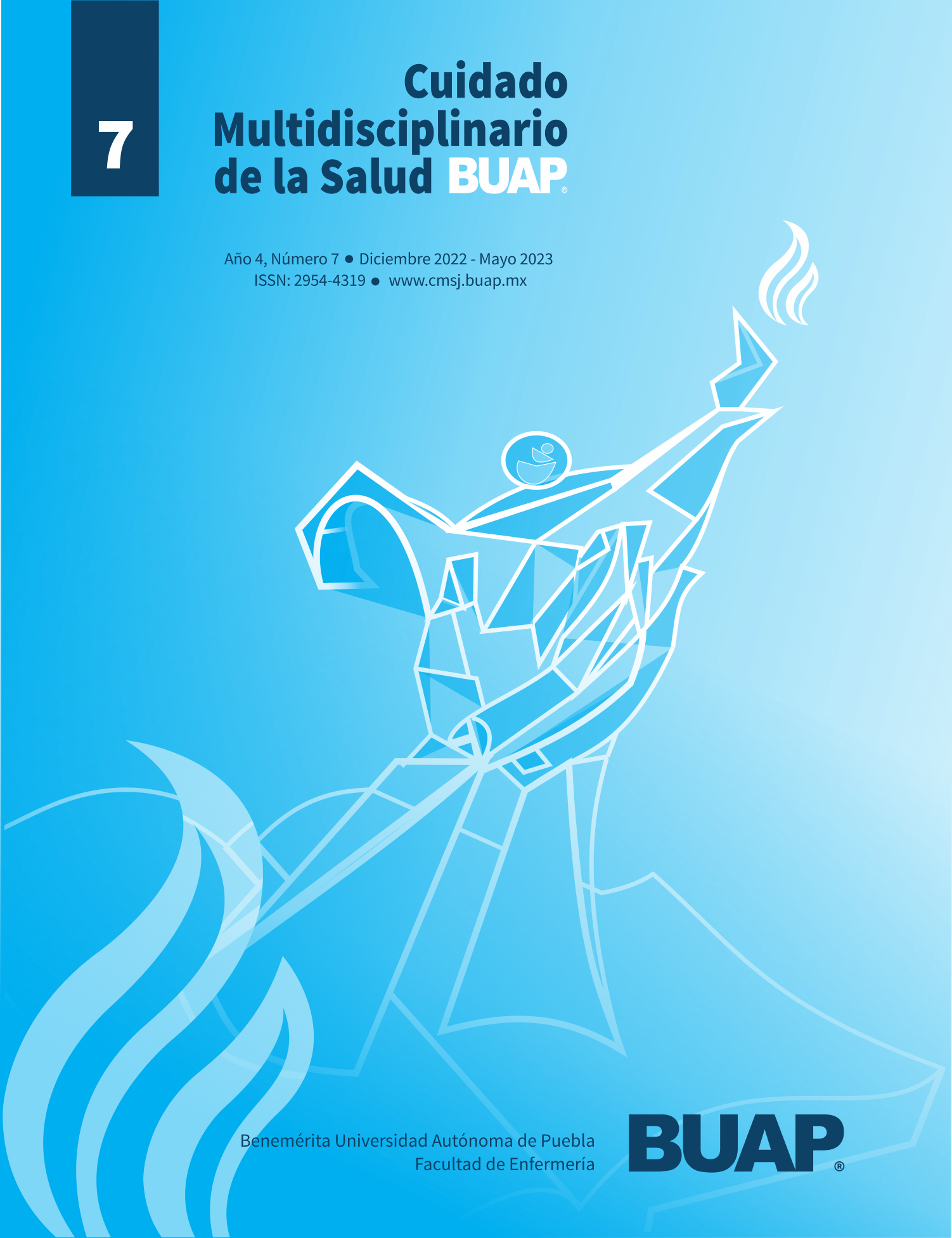Dialectics of reflective and critical thinking around of professional nursing care
Keywords:
Dialectical, Care, Thinking, surgical care, professional autonomyAbstract
Introduction. Currently, Nursing establishes as one of its needs to provide evidence-based care, however, it is necessary to consider that higher-order skills such as reflective and critical thinking are required as the basis for innovating in professional practice.
Objective. Characterize the dialectical relationship of the application of reflective and critical thinking in professional nursing care in the surgical field. Evidencing the theoretical proposal where decision making, leadership and autonomy are constructs dependent on this way of thinking.
Methodology. Research-action, with a qualitative approach based on the critical-dialectical method, 20 nursing professionals from the surgical area were interviewed. This research is organized in three phases (diagnosis, intervention, and evaluation). For the analysis of the three phases, content analysis based on axial categorization was applied, where the core is the application of reflective and critical thinking and the sub-cores: decision-making. decisions, leadership, and autonomy.
Results. Among the testimonies of the diagnostic phase, it is noted how the participants justify their decision-making according to experience, their leadership is exercised from knowledge and ability, while autonomy is a recognition process that they receive from the multidisciplinary team. After the seminar, the main finding is the modification in the perception of this thought and the link they make with these constructs to improve their professional practice, becoming agents of change in the way of explaining, with colleagues, students and patients, a care based on this thought process.
Conclusions. It is necessary to modify the preconception of the care provided by the professional in the surgical field, extending a bridge between the technical/technological activities and those of accompaniment and comfort through the application of reflective and critical thinking.
References
Cárdenas-Becerril, B. L., Monroy, R. A., Arana, G. B. & García-Hernández, L. M. (2015). Importancia del pensamiento reflexivo y crítico en enfermería. Revista Mexicana de Enfermería Cardiológica, 23(1), pp. 35-41. http://www.revistamexicanadeenfermeriacardiologica.com.mx/index.php/RevMexEnferCardiol/issue/view/9/2015%206
Diario Oficial de la Federación (DOF). (2022). Reglamento de la General de Salud en Materia de Investigación para la Salud. Gobierno de México. https://www.diputados.gob.mx/LeyesBiblio/regley/Reg_LGS_MIS.pdf
Gamboa-Araya, R. (2011). El papel de la teoría crítica en la investigación educativa y cualitativa. Rev. Elec. Diag. Edu., 11(21), pp. 48-64. http://revistas.umce.cl/index.php/dialogoseducativos/
article/view/1079
Guerrero-Nuñez, S., Cid-Henríquez, P. (2015). Una reflexión sobre la autonomía y el liderazgo en enfermería. Rev. Aquichan, 15(1), pp. 129-140. https://aquichan.unisabana.edu.co/index.php/aquichan/article/view/3511/pdf
Guillamet, A. & Jerez, J. (1999). Enfermería Quirúrgica. Planes de Cuidados. Springer Verlag Ibérica.
Hamlin, L., Richardson-Tench, M., Davies, M. (2010). Enfermería perioperatoria, texto introductorio. El Manual Moderno.
Herdman, T. H., Kamitsuru, S. & North American Nursing Diagnosis Association (NANDA) (Eds). (2015). NANDA Internacional: Diagnósticos de Enfermería Internacionales. Definiciones y clasificación 2015-2017. Elsevier.
Karadağ, A., Hisar, F. & Elbaş, N. Ö. (2007). The level of professionalism among nurses in Turkey. Journal of Nursing Scholarship, 39(4), pp. 371-374. http://dx.doi.org/10.1111/j.1547-
5069.2007.00195.x
Krause, M. (1995). La investigación cualitativa: Un campo de Posibilidades y Desafíos. Revista Temas de Educación, 7, pp. 19-39. https://gc.scalahed.com/recursos/files/r161r/w23896w/inv_
cualitat_krause.pdf
Lemone, P. & Burke, K. (2009). Enfermería medicoquirúgica. Pensamiento crítico e la asistencia del paciente (Vol. 1). Pearson.
Luengo-Martínez, C. Paravic-Klijn, T. & Burgos-Moreno, M. (2017). Profesinalismo en enfermería: una revisión de la literatura. Enfermería Univesitaria, 14(2), pp. 131-142. https://doi.org/10.1016/j.reu.2017.02.001
Minguez-Moreno, I. & Siles, J. (2014). Pensamiento crítico en enfermería: de la racionalidad técnica a la práctica reflexiva. Revista Aquichan, 14(4), pp. 594-604. http://dx.doi.org/10.5294/
aqui.2014.14.4.13
Pucheu, A. (2009). Liderazgo de enfermeras supervisoras: ¿Cómo influyen sobre las enfermeras clínicas? Horiz Enferm., 20(1), pp. 13-26. http://ojs.uc.cl/index.php/RHE/article/view/12708/11308
Stacey, D., Légaré, F., Pouliot, S., Kryworuchko, J. & Dunn, S. (2010). Shared decision-making models to inform an interprofessional perspective on decision making: a theory analysis. Patient Education and Counseling, 80(2), pp. 164-72. https://doi.org/10.1016/j.pec.2009.10.015
Strauss, A. & Corbin, J. (2002). Bases de la investigación. Técnica y procedimientos para desarrollar la teoría fundamentada. Universidad de Antioquia.
Downloads
Published
How to Cite
Issue
Section
License
The moral rights belong to the author, the economic rights belong to the Benemérita Universidad Autónoma de Puebla.






